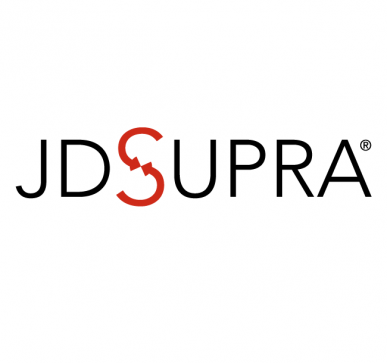Common Reporting Standard (CRS) Reporting Avoidance Game Is Over – JD Supra 4/6/18.
The Common Reporting Standard (CRS) is a reality for over one hundred Jurisdictions during 2018. The Organization for Economic Co-operation and Development (OECD) has stated that there are potential and perceived loopholes in the Common Reporting Standard (CRS) that there are potential and perceived loopholes in the Common Reporting Standard (CRS) that require significant changes and amendments in certain Jurisdictions for the automatic exchange of information to be effective. Closing the Loopholes for Misuse of Residency is at the forefront of the OECD and the OECD Secretary-General (Angel Gurria) has stated that the loopholes and deficiencies within the CRS encourage the use of secrecy to evade taxes. As a result, the OECD put a three (3) step process in place for closing the loopholes and deficiencies:
1) Intelligence Gathering: the cooperation of government representatives, business associations, financial institutions, civil society organizations and whistle-blowers gather intelligence on the perceived weaknesses of the CRS in their respective market places.
2) Analysis: actual or perceived loopholes that are reported to the Portal are systematically analyzed and risk-assessed. These loopholes could be due to deliberate policy decisions (managing the reporting amount thresholds), an erroneous understanding of the CRS or an unintended potential loophole.
3) Action: there will be a course of action for each loophole including: public guidance, sharing amongst governments, providing governments with intelligence, developing best practice “anti-abuse” provisions and collaborating with the Global Forum on Tax Transparency – the largest international tax organization in the world.
The OECD provides a CRS Public Disclosure Facility by providing an on-line form (https://survey.oecd.org/Survey.aspx?s=9b9dbd31c73e4b888753a8de3d222214&&forceNew=true&test=true) which allows the Individual(s) to share information on potential schemes, products and/or structures that may be used for circumventing reporting under the CRS. All the reported schemes will be systematically analyzed by the OECD with a view to assessing the risk they present to the overall integrity and effectiveness of the CRS and agreeing to appropriate courses of action. The input provided can be on an anonymous basis.
The OECD considers the following loopholes as the most serious:
• Financial Institutions assisting with account shifting.
• Residency through investment programs.
• Shifting of assets to non-CRS jurisdictions.
• Shifting of assets within the same jurisdiction.
• Non-cash value insurance products.
“Jurisdiction Investments”
There are jurisdictions offering “Residence by Investment” (RBI) or “Citizenship by Investment” (CBI) programs encouraging foreign individuals to obtain citizenship or temporary or permanent residence rights in exchange for local investments or a flat fee. Foreign individuals could be interested in these schemes for a number of legitimate reasons such as: greater mobility thanks to visa-free travel, better education and job opportunities for children, or the right to live in a country with political stability. Nonetheless, the OECD has obtained information (from the market place and through the OECD’s CRS public disclosure facility) supporting the misuse of RBI and CBI to circumvent reporting requirements under the CRS.
Professional Service Providers and Promoters are subject to the new Model Disclosure Rules
On March,9, 2018, the OECD issued new Model Disclosure Rules that require lawyers, accountants, financial advisors, banks and other service providers to inform tax authorities of any schemes they put in place for their clients to avoid reporting under the OECD – CRS, or to prevent the identification of the beneficial owners of entities or trusts. The purpose of these rules is to provide Tax Administrations with information on CRS Avoidance Arrangements and Opaque Offshore Structures; including the users of those Arrangements and Structures and those involved with their supply. The Model Disclosure Rules require that an Intermediary or a user of a CRS Avoidance Arrangement or an Opaque Offshore Structure disclose certain information to its Tax Administration. If such information relates to users that are resident in another jurisdiction, then that information would be exchanged with the tax administration(s) of that jurisdiction. The Model Disclosure Rules are based on international best practices and presents tax administrations with options to address perceived risks under a framework of five key elements:
- A description of the Arrangements that are required to be disclosed
- A description of the persons required to disclose such Arrangements
- A trigger for the imposition of a disclosure obligation
- A description of what information is required to be reported
- Appropriate penalties or other mechanisms to address non-compliance
Model Disclosure Rules
The Rules provide definitions for a CRS Avoidance Arrangement, Opaque Offshore Structure, Intermediary and Other Definitions. The requirement to disclose CRS Avoidance Arrangements and Opaque Offshore Structures is further defined by:
- Obligation on Intermediary to Disclose
- When information is required to be disclosed
- Information required to be disclosed by Intermediary
- No obligation for the Intermediary to disclose
- No obligation on Intermediary to disclose to the extent information has already been disclosed
- Reportable Taxpayer required to disclose in certain circumstances
- Disclosure of Arrangements entered into after 29 October 2014 and before the effective date of the Model Disclosure Rules
Don’t be a victim of your own making. Intermediaries and Promotors are required to disclose CRS Avoidance Arrangements and Opaque Offshore Structures. There are penalties for dealing with non-compliance that include monetary and non-monetary penalties imposed on all the parties involved. Consult your tax specialist.
https://www.jdsupra.com/legalnews/common-reporting-standard-crs-reporting-75909/





